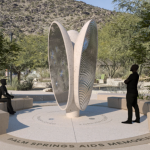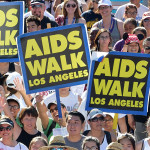Leadership on Capitol Hill
In “Washington Warrior” (January/February 2012), POZ editor Regan Hofmann interviewed U.S. Representative Barbara Lee (D–Calif.) about her leadership role in garnering congressional support to fight HIV/AIDS.
I enjoyed the POZ cover story on Congresswoman Lee. I didn’t know much about her story, but the piece covered every bit of it, and now I have an even stronger appreciation for what she’s done for the underserved.
Adina Ellis
Washington, DC
This is a great article about a “Warrior Queen” on Capitol Hill fighting for people like me. I have been following Ms. Lee for a while now and see that beyond the pretty face is a person with remarkable qualities—she’s a go-getter. Lee has championed the issues of real people living in the real world and [has tried to address the problems of people living with HIV]. The work she does puts laws in alignment with the people. A true hero!
Cliff Williams
Philadelphia
Out of the Shadows
Tomika Anderson’s feature “Forgotten Sons” (January/February 2012) explains how homophobia, incarceration, stigmatization and other factors contribute to the high HIV infection rates among young black men who have sex with men.
This article was deep, and it addressed things I had never seen in an HIV-related article before—about masculinity and the things we same gender loving black men go through. I wish I had seen more solutions though. Maybe the insights in the article will help decision makers. I agree with Cleo Manago that getting tested is not going to prevent HIV transmission. I know more than a few guys that spread the virus through unsafe sex soon after finding out they were positive. They were freaked out or pissed off and didn’t have a support system in their city to help them deal with the emotional impact. After these young men get tested and come up positive, then what?
Kevin
Location Withheld
The piece [about the] HIV epidemic among young black gay and bisexual men was fantastic. Writer Tomika Anderson really captured the complex social factors that contribute to high rates of HIV, such as homophobia, stigma and a sense of hopelessness. The article also contextualized the epidemic within the historical oppression of people of color in the U.S. I hope Anderson’s article will encourage continued action to address the HIV epidemic and the social and economic conditions that place the LGBT [lesbian, gay, bisexual and transgender] community and people of color at greater risk of HIV infection.
Shawn Jain
Washington, DC
Great article, and so needed. I had a family member who died of AIDS a number of years ago. If folks asked and I’d tell them, the response was always: Was he gay? Did he use drugs? My response is always: Does it matter?
Sylvia
Location Withheld
Raising the Fund-Raising Roof
In “Hey, Mr. DJ” (January/February 2012), we interviewed the Miami-based disc jockey Jimmy P about his music playing career and his fund-raising work for HIV and LGBT causes.
I have known James for years while doing fund-raisers and advocacy work, and I have to say that he was always there for us, as was the late Fulgencio (his longtime companion, whom we all miss dearly). James gave us his talent as a DJ for many events for the Latino community, and there was always a positive response. Congrats, friend. A well-deserved article—keep it going for all of us.
Henry Boza
Miami
This article is a real story [about] a real person who helps his community with real commitment.
Emilio Aponte-Sierra
Bay Harbor Island, FL
A Big Comeback
In our Web Exclusive “Back in the Driver’s Seat,” we caught up with Wayne Starks, 51, a former New York City bus driver and father of two who was first interviewed for a January/February POZ supplement on HIV and hepatitis C virus (HCV) coinfection. He discussed how he navigated his diagnoses, addiction and homelessness.
Thank you Wayne for your story on your sweet comeback to life, my brother. You give hope to those who have given up on life and think that life is now over for them. You have shown them that life is what you make it.
FverySpecial
Hattiesburg, MS
I too am in recovery from addiction and am surviving with HIV/HCV coinfection. I’ve been taking interferon and ribavirin for two years now and will be completing treatment for HCV in two weeks, now that I’ve finally been experiencing an SVR [sustained virologic response]. Life gets better if I let it.
Hussain Turk
Kalamazoo, MI
I was diagnosed five years ago with cirrhosis, and 18 months later I found out I had hep C at a blood bank. I quit drinking a year after I was diagnosed, and my liver enzymes have been normal ever since.
Deborah
Tulsa






Comments
Comments